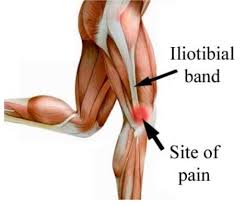Women are encouraged to start or continue exercising in pregnancy to enjoy the benefits it brings. In most cases, exercise is safe and beneficial for mother and baby during pregnancy. So, keep up your usual daily exercise routine (walking, running, yoga, dancing) for as long as you feel comfortable. Towards the later months of pregnancy 2nd and 3rd trimester, there is usually a drop in exercise performance and that’s normal.
Is it Safe? And, what are the benefits?
Exercise is not dangerous for you or the baby there is some evidence that active women are less likely to experience problems in later pregnancy and labour plus you are more likely to return to exercise post-partum. Regular exercise may also help to reduce fatigue, oedema, varicosities and stress levels.
Low impact exercise is recommended to reduce strain on your joints. Examples of low impact exercise include:
- Walking
- Using an exercise bike
- Swimming
- Using a cross-trainer
- Aqua-aerobic classes
- Low-impact aerobic classes
- Endurance light weight training
- Pelvic floor muscle training
- Deep abdominal (transversus abdominus) muscle training
- Antenatal Pilates
- Antenatal yoga
What type of exercise should I avoid?
You should avoid high impact exercise, contact sports and other activities that have a risk of falling. You should also avoid exercising in high or low atmospheric pressure such as scuba diving, sky diving.
How much exercise should I aim for?
This is up to you given your prior exercise experience. The national guidelines recommend 30 mins of aerobic activity most of the days plus additional sessions on strength conditioning, stability and pelvic floor.
If you are new to exercise, make sure you start slowly and don’t do strenuous exercise too soon. If you are joining a class inform you instructor about your pregnancy. Remember exercise it shouldn’t be strenuous to enjoy the benefits.
Always consult your doctor before commencing any physical activity if you suspect you are pregnant!
See also:
- Benefits of physical activity on diabetes
- Tips to be more active!
- Why sitting is bad
- Benefits of physical activity
- Physical activity guidelines
Sources:
https://www.nhs.uk/conditions/pregnancy-and-baby/pregnancy-exercise/
https://www.nhsinform.scot/healthy-living/keeping-active/getting-started/exercise-during-pregnancy
Physical Activity and Pregnancy: Past and Present Evidence and Future Recommendations
Danielle Symons Downs, Lisa Chasan-Taber, Kelly R. Evenson, Jenn Leiferman, and SeonAe Yeo
Res Q Exerc Sport. 2012 Dec; 83(4): 485–502.



